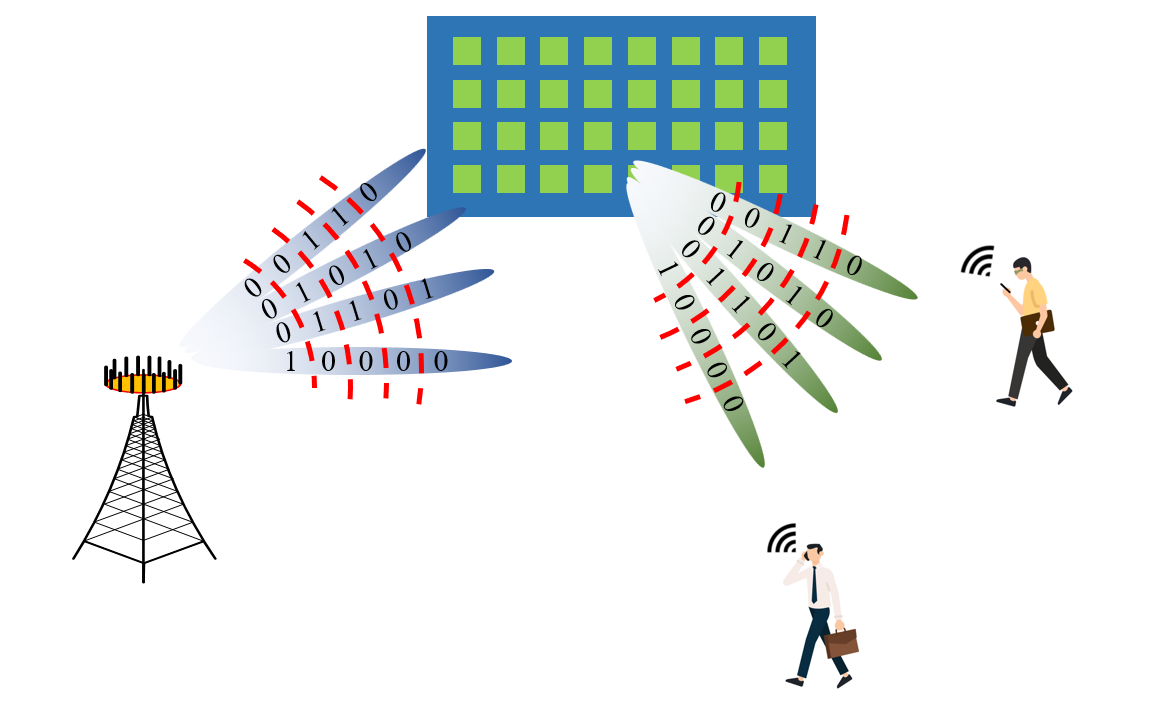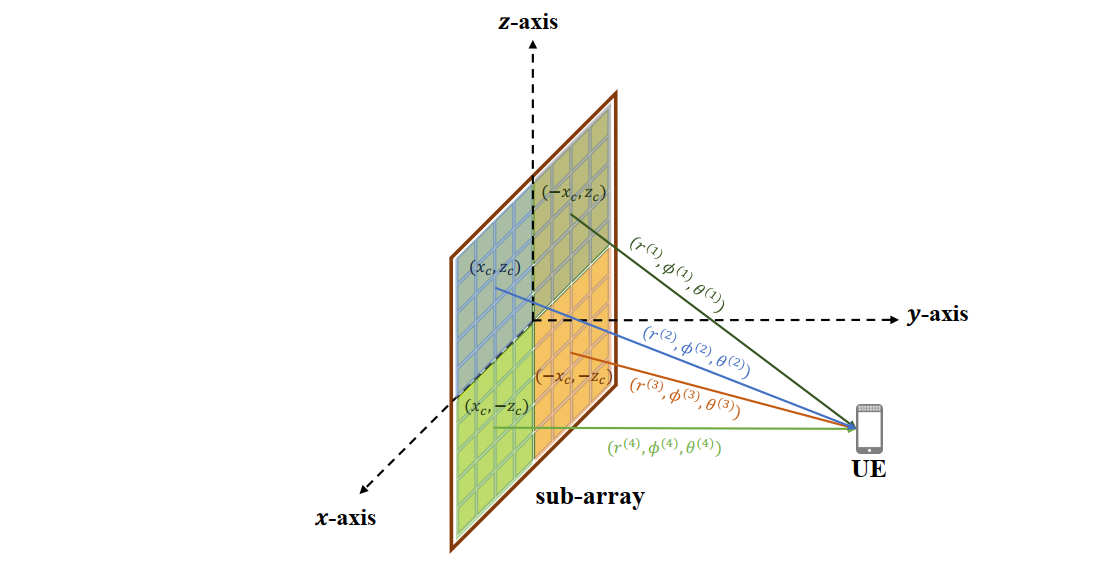Algorithm Design for Future 6G RIS-Assisted Wireless Communications @ Tsinghua
For future RIS-assisted communication systems, explore how to deal with emerging challenges such as the wideband effect, spatial non-stationary effect. In addition, for specific characteristics of RIS, such as the "multiplicative fading" effect, design algorithms based on the idea of channel coding.
Propose a beam training framework in RIS systems based on the idea of channel coding to enhance the beam training accuracy. Apply the 4-ary code in the design of the framework.
Propose a group time block code (GTBC) based RIS decoupling scheme to deal with the spatial non-stationarity in RIS systems. Design a dynamic codebook to represent the cascaded near-field channel in RIS systems effectively.
Analyze the specific power distribution pattern of the wideband effect in RIS-assisted wideband THz systems. Design a beam training framework by exploiting this effect rather than overcoming it.



